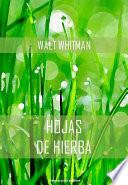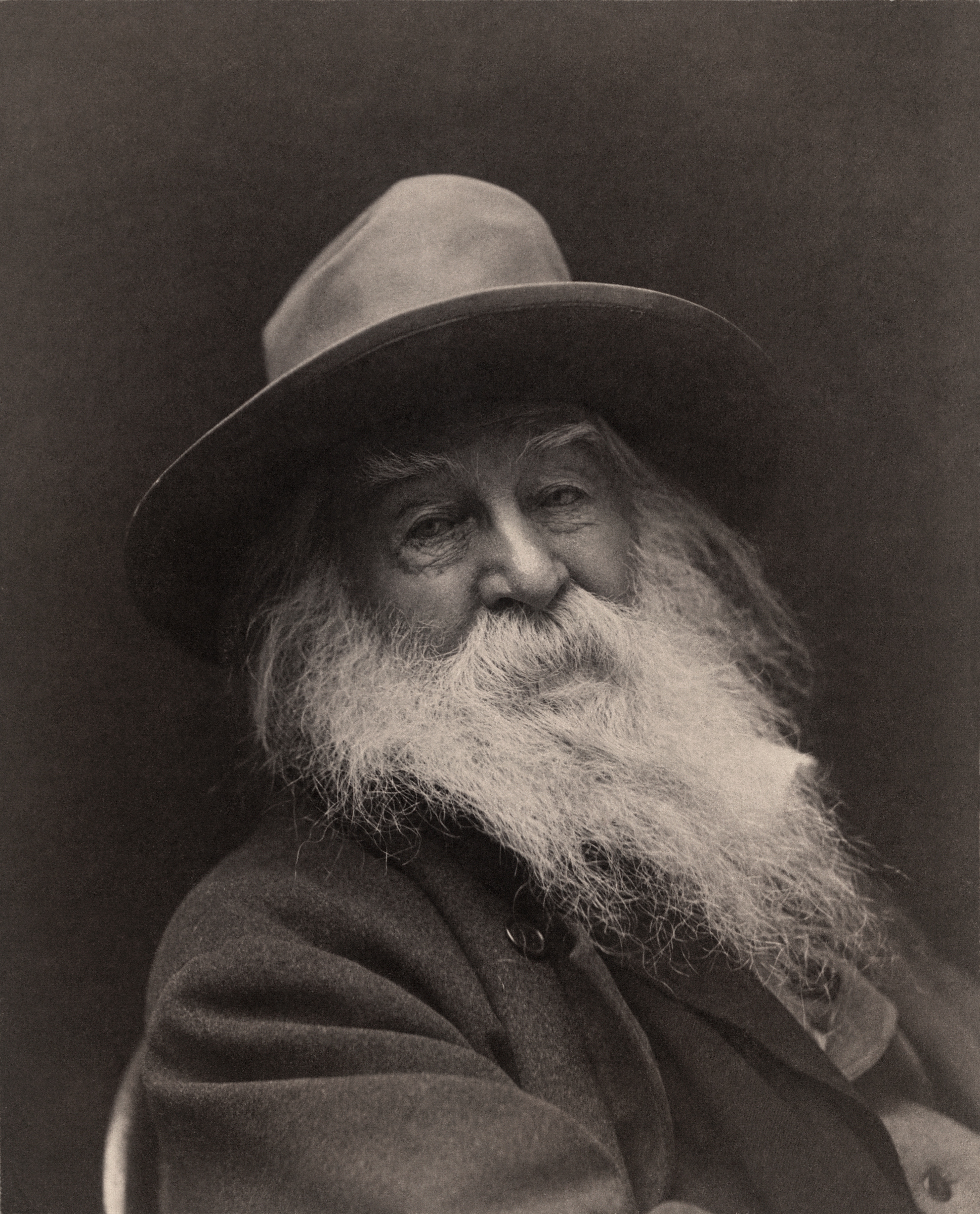Obras
Song of Myself
Walt Whitman
Hojas de hierba
Walt WhitmanFrases célebres de Walt Whitman
Canto a mí mismo: Editorial Fuego Azul
Frases de vida de Walt Whitman
Walt Whitman Frases y Citas
“Quien camina una legua sin amor, camina amortajado hacia su propio funeral.”
Sin fuentes
Variante: Aquel que camina una sola legua sin amor, camina amortajado hacia su propio funeral.
Hojas de hierba
Hojas de hierba
Canto a mí mismo: Editorial Fuego Azul
Canto a mí mismo: Editorial Fuego Azul
Canto a mí mismo: Editorial Fuego Azul
Walt Whitman: Frases en inglés
While consistently attributed to Whitman, this popular motivational quote has no source. It is occasionally listed as occurring in Leaves of Grass, but the closest phrase found in that collection is "Be not curious about God."
Disputed
Variante: Be curious, not judgmental.
“Keep your face always toward the sunshine – and shadows will fall behind you.”
This has become attributed to both Walt Whitman and Helen Keller, but has not been found in either of their published works, and variations of the quote are listed as a proverb commonly used in both the US and Canada in A Dictionary of American Proverbs (1992), edited by Wolfgang Mieder, Kelsie B. Harder and Stewart A. Kingsbury.
Misattributed
“I do not ask the wounded person how he feels, I myself become the wounded person.”
Fuente: Song of Myself
Variante: What is that you express in your eyes? It seems to me more than all the words I have read in my life.
“I am large, I contain multitudes.”
Leaves of Grass
Variante: I contradict myself. I am large. I contain multitudes.
“I sound my barbaric yawp over the roofs of the world.”
Song of Myself, 52
Bartlett's Familiar Quotations, 10th ed. (1919)
The Sleepers, 7
Bartlett's Familiar Quotations, 10th ed. (1919)
Fuente: Leaves of Grass
“I discover myself on the verge of a usual mistake.”
Fuente: Song of Myself
Complete Prose Works (1892), III. Notes Left Over 3. Ventures, on an Old Theme, p.324 http://books.google.com/books?id=UJA1AAAAMAAJ&pg=PA324
Contexto: If the United States haven't grown poets, on any scale of grandeur, it is certain that they import, print, and read more poetry than any equal number of people elsewhere — probably more than the rest of the world combined.
Poetry (like a grand personality) is a growth of many generations — many rare combinations.
To have great poets, there must be great audiences too.
"Talk to an Art-Union (A Brooklyn fragment)" http://www.aol.bartleby.com/229/4011.html (1839); later delivered as a lecture at the Brooklyn Art Union (31 March 1851) and printed in the Brooklyn Daily Advertizer (3 April 1851)
Contexto: It is a beautiful truth that all men contain something of the artist in them. And perhaps it is the case that the greatest artists live and die, the world and themselves alike ignorant what they possess. Who would not mourn that an ample palace, of surpassingly graceful architecture, fill’d with luxuries, and embellish’d with fine pictures and sculpture, should stand cold and still and vacant, and never be known or enjoy’d by its owner? Would such a fact as this cause your sadness? Then be sad. For there is a palace, to which the courts of the most sumptuous kings are but a frivolous patch, and, though it is always waiting for them, not one of its owners ever enters there with any genuine sense of its grandeur and glory.
I think of few heroic actions, which cannot be traced to the artistical impulse. He who does great deeds, does them from his innate sensitiveness to moral beauty.
"Talk to an Art-Union (A Brooklyn fragment)" http://www.aol.bartleby.com/229/4011.html (1839); later delivered as a lecture at the Brooklyn Art Union (31 March 1851) and printed in the Brooklyn Daily Advertizer (3 April 1851)
Contexto: It is a beautiful truth that all men contain something of the artist in them. And perhaps it is the case that the greatest artists live and die, the world and themselves alike ignorant what they possess. Who would not mourn that an ample palace, of surpassingly graceful architecture, fill’d with luxuries, and embellish’d with fine pictures and sculpture, should stand cold and still and vacant, and never be known or enjoy’d by its owner? Would such a fact as this cause your sadness? Then be sad. For there is a palace, to which the courts of the most sumptuous kings are but a frivolous patch, and, though it is always waiting for them, not one of its owners ever enters there with any genuine sense of its grandeur and glory.
I think of few heroic actions, which cannot be traced to the artistical impulse. He who does great deeds, does them from his innate sensitiveness to moral beauty.
